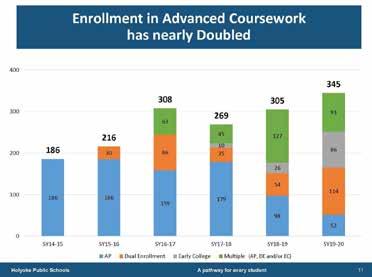
3 minute read
Who is born a US citizen?

Who is born a US citizen? by CAROL NACKENOFF and JULIE NOVKOV This article was originally published in The Conversation | January 15, 2020 A recent court ruling about faraway American Samoa may have profound implications for a conflict that’s been going on for nearly 200 years: who gets to be an American citizen. Debates over who gets citizenship and what kind of citizenship they get have always been intertwined with race in American history, as we have learned through our individual research on the historical status of Native Americans and African Americans and the research we have done together on restricting Chinese immigration. Nonetheless, even in the highly racialized political environment of the late 19th century, the U.S. Supreme Court endorsed an expansive view of birthright citizenship – the idea that people born in a country are automatically citizens of that nation. In an 1898 ruling, the court decreed that the children of immigrants were citizens, regardless of their parents’ ancestry. That decision laid the groundwork for the 21st-century ruling that people born in the U.S. Pacific island territory of American Samoa are U.S. citizens. If upheld on appeal, the ruling would overturn more than a century of federal policy, including congressional refusal to grant American Samoans citizenship status. Where is American Samoa? American Samoa is a U.S. territory in the southern Pacific Ocean, with five main islands and two coral atolls. Dred Scott, around 1857, when he sued seeking freedom from slavery for himself, his wife and their two children. Wikimedia Commons Legal and constitutional transformation After the Civil War, Congress explicitly rejected the Dred Scott decision, first by passing legislation reversing the ruling, and then by writing the 14th Amendment to the Constitution, which specified that “[a]ll persons born or naturalized in the United States, and subject to the jurisdiction thereof, are citizens of the United States and of the State wherein they reside.” This broad language intentionally included more than just the people who had been freed from slavery at the end of the Civil War: Members of Congress discussed the potential inclusion of the children of other nonwhite groups, like Chinese immigrants and those identified as Gypsies.
Advertisement
Map: The Conversation, CC-BY-ND Citizenship by birth Federal laws govern some people’s citizenship – such as those who seek to be naturalized or people born overseas with at least one parent who is a U.S. citizen; the law says they, too, may claim U.S. citizenship. Similarly, children from other countries who are adopted by U.S. citizens become citizens themselves when the adoption is finalized. But most citizens of the U.S. are born, not made. Before the Civil War, the U.S. had generally followed the English practice of granting citizenship to children born in the country. In 1857, though, the Supreme Court had decided the Dred Scott v. Sandford case, with Chief Justice Roger Taney declaring that people of African descent living in the U.S. – whether free or enslaved, and regardless of where they were born – were not actually U.S. citizens.

The Congressional Record shows the House and Senate votes on the 14th Amendment. Edward McPherson, Clerk of the House of Representatives of the United States/Wikimedia Commons The Congressional Record shows the House and Senate votes on the 14th Amendment. Edward McPherson, Clerk of the House of Representatives of the United States/Wikimedia Commons Still barring some from citizenship However, this inclusive view of citizenship still had an area judges hadn’t made clear yet – the phrase “subject to the jurisdiction thereof.” In 1884, the Supreme Court had to interpret those words when deciding the case of a Native American who wanted to be a citizen, had renounced his tribal membership and attempted to register to vote. The justices ruled that even though John Elk had been born in the U.S., he was born on a reservation as a member of a Native American tribe and was therefore subject to the tribe’s jurisdiction at his birth – not that of the United States. He was, they ruled, not a citizen. In 1887, Congress did pass a law creating a path to citizenship for at least some Native Americans; it took until 1924 for all Native Americans born on U.S. soil to be recognized as citizens.
continued on page 6



